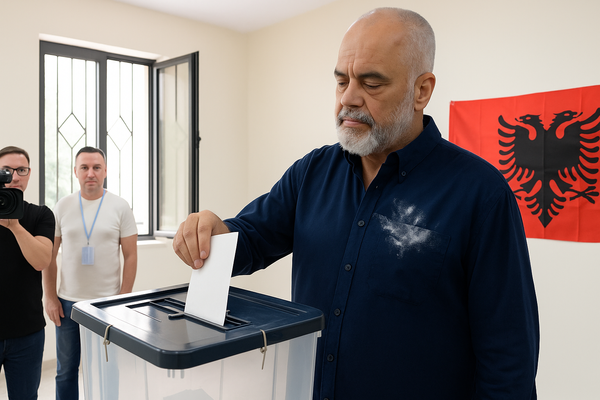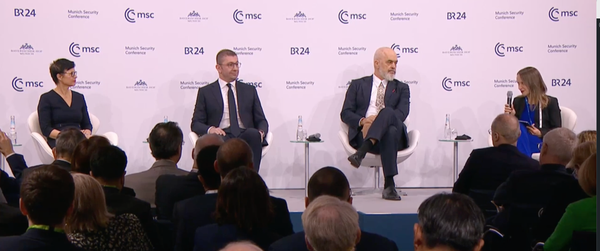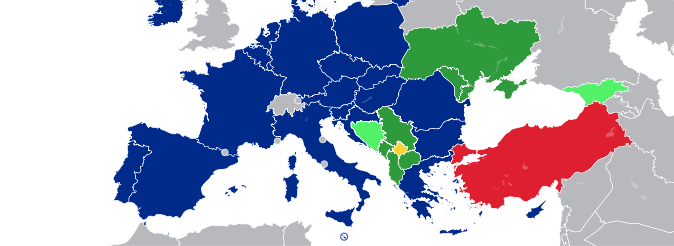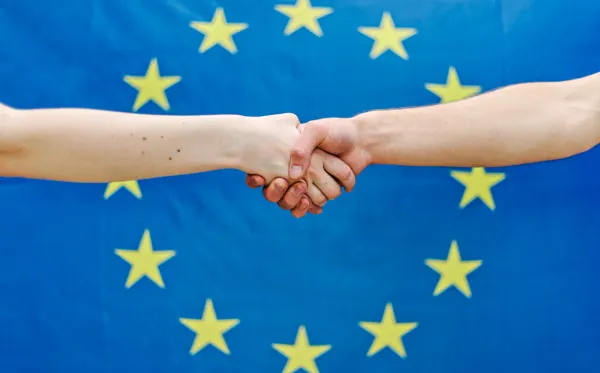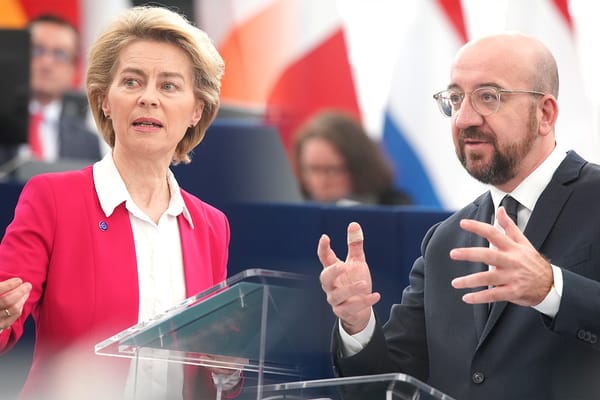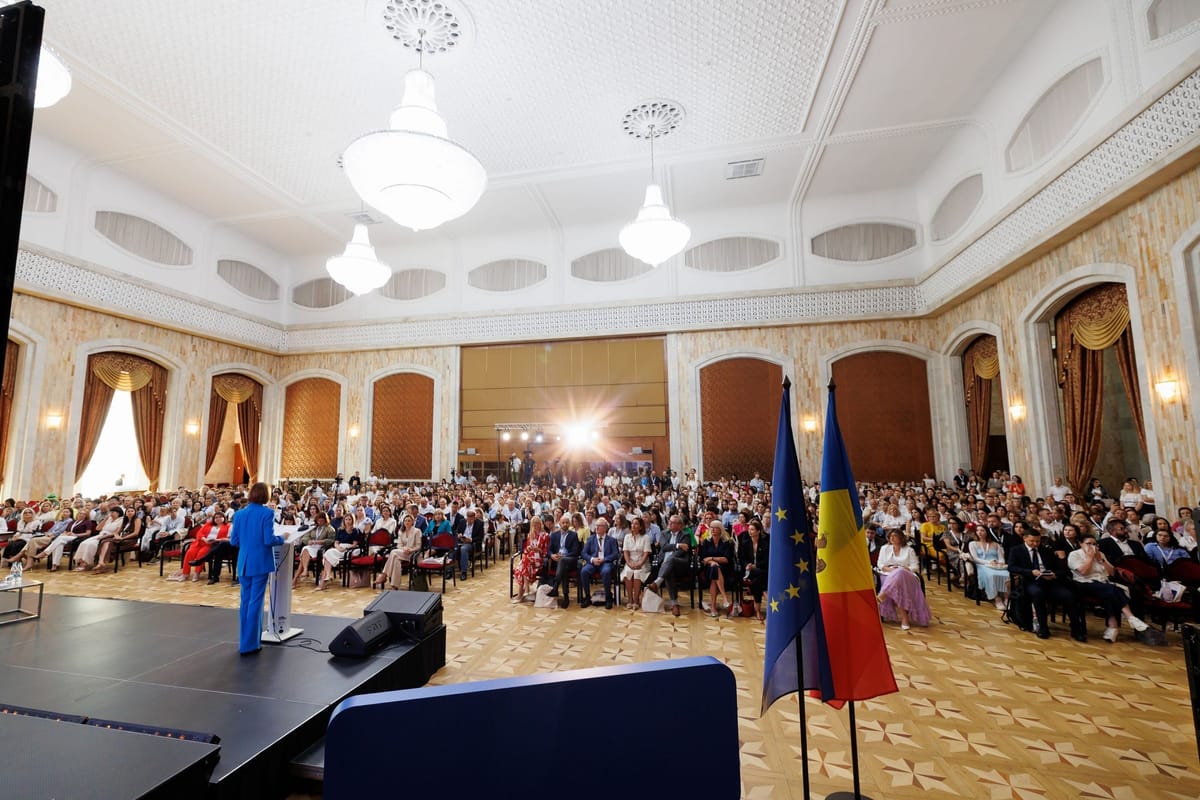
Moldova may leapfrog Ukraine in EU accession talks as Brussels mulls separate tracks
Moldova will overtake Ukraine in the EU accession process next month, according to sources cited by Brussels-based website Politico on 15 August.
Both countries launched official EU accession talks on 25 June, as European Commission (EC) President Ursula von der Leyen confirmed at a joint summit of Moldovan and Ukrainian leaders.
However, the EU is now mulling separate schedules, just two months after an EC statement confirmed that screening had commenced in tandem.
If the EU decides to approach Moldova separately, it would depart from recent EU practice of advancing Moldova, Ukraine and Georgia as a group under the "Association Trio" framework.
Moldova’s next parliamentary election is scheduled for 28 September. Moldovan President Maia Sandu’s pro-European Party of Action and Solidarity (PAS) is currently leading in national polls, in the wake of a November 2024 referendum enshrining EU membership in the country’s Constitution. A September announcement by the EU would serve as political backing for Sandu’s reform campaign to join the EU in 2030.
In contrast to Ukraine, Moldova has managed to maintain alignment with EU institutions while avoiding high-level disputes. At a summit in Chisinau on 4 July, the EU pledged up to EUR 1.9bn in funding, including EUR 270mn in immediate support for infrastructure and energy investments, news agency AP reported.
Zelenskyy calls for consistency
Ukrainian President Volodymyr Zelenskyy called on the EU to honour its enlargement commitments when he addressed a conference of CEE leaders in the Black Sea port of Odessa.
Collective efforts were needed to keep Moscow from causing further disruption, Zelenskyy argued, adding that the security of Southeastern Europe and the Black Sea is "indivisible".
Danish Europe Minister Marie Bjerre echoed the sentiment in Chisinau: “Each candidate must be judged on its own merits, but we must not lose momentum. The window for strategic enlargement is now.”
Romania backs unity, Hungary blocks Ukraine
Hungary is a European outlier in openly opposing Ukraine’s accession. Hungarian Prime Minister Viktor Orban said last month that the EU “should not integrate a country at war”, while accusing Kyiv of failing to uphold the rights of the Hungarian minority in Ukraine.
Orban has repeatedly used Hungary's veto to delay or dilute collective EU decisions on Ukraine’s path, including accession benchmarks and funding approvals.
Conversely, Romania has consistently supported Moldova’s accession bid. Luminita Odobescu, who served as Romanian Foreign Minister from June 2023-December 2024, has said Moldova has made “real and sustained progress” on EU-aligned reforms and called for enlargement policy to remain “predictable and merit-based”.
Odobescu added that Ukraine’s integration must also remain a strategic priority. “Romania stands for a united approach that preserves momentum across the region."
The EC’s annual enlargement report, due in October, will also provide updated assessments of candidate countries' reform progress, rule-of-law performance and institutional alignment.

